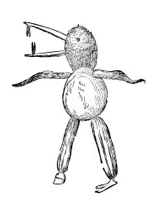Abecedarian for the Future
All the old gray gods have fallen
back to their static realms of myth
cleared from the benches, thrones,
dragged kicking to their stone tombs,
each one grizzled by their swift exile
frayed, bedraggled, forced to kneel,
give up their guns, armor, swords,
hand over their passports, global security
identification, and be stripped bare.
Justice has relegated them to history,
kept nothing but the long rancorous
list of crimes (slaughterers all)
molded them into dull cement statues
not to worship, but as a warning most
ominous. Here stood Greed and his brother
Pride, note their glazed inhuman eyes,
question their puny stature now, how
rodent-like, how utterly overthrow-able.
Still, remember how long they ruled?
Tyrannical and blustering, claiming
universal power, until the kinder masses
voted the callous thin-lipped lizards out?
What a day that was! The end of hatred,
xenophobia, patriarchal authority—but
yes, we waited too long, first we had to
zero out, give up on becoming gods at all.
After the Argument the Grass Moves
The feather reed grass is fountaining
near the freshly-mowed front lawn, the drought
has ended for now and the fescue is green
again, the pesky crab grass is green again
and splits into wiry tendrils in inopportune
places. Though we never do, or rather, it's rare,
(the flagrant indigo bunting spotted, black
widow in the cable box caught), we fought
last night. Me in the guest room crying
because I had hurt your feelings, the ones
I am so intricately attached to and, when
in my right mind, would plant and water
and sun in all the ways that make a thing
grow. Would you opt to be the one hurt or
the one that does the hurting? A wind
shakes the cascading grass now so it looks
as if there's a frantic animal inside of it.
I can imagine its sharp teeth, filthy claws,
a kind of trapped agony inside the matted
coat. I think this is what it looks like when
a nastiness takes over for no reason, when
the only cage that is holding me is my own.
But of course there is no desperate animal
stuck in the high grass, no animal at all,
that too was what I brought into this world,
rabid and always on my side, so only I can kill it.
Jar of Scorpions
Translucent and slithering against the beige carpet,
like a dozen fugitive ideas shoved to the back
of the brain's border—the ideas about hurting yourself
or hurting others—they came into view, the filaments
of nightmares, the stinging slopsuckers, the venomous miscreants,
two pedipalps grasping for prey already in the first hours
of their birth. How strange to think nearly thirty years later, I see
those nascent scorpions as clear as today's dead moth
stuck to the screen's small squares. We did what children do
with tiny and terrible things, we trapped them so we could see
more closely, intimately, investigate their particular evil doing,
behind the thick clear glass of the mason jar. We watched
how they crawled, stingers readied, on top of one another, circling.
Our discovery felt awful, like unearthing mortality, torture, war.
We were two girls then, and despite our restless fear
we could not bring ourselves to kill them, we grew almost
fond of the way they scurried against the glass, the way they became
almost ours—minuscule marauders, all things of the night captured
in the light's unforgiving reveal. We do not know what happened to them.
We left the scorplings in the middle of the floor in the glass with a sign,
that said, simply, Jar Of Scorpions. This is where it ends. Or begins.
What do you want for them? From here, we can make it up.



